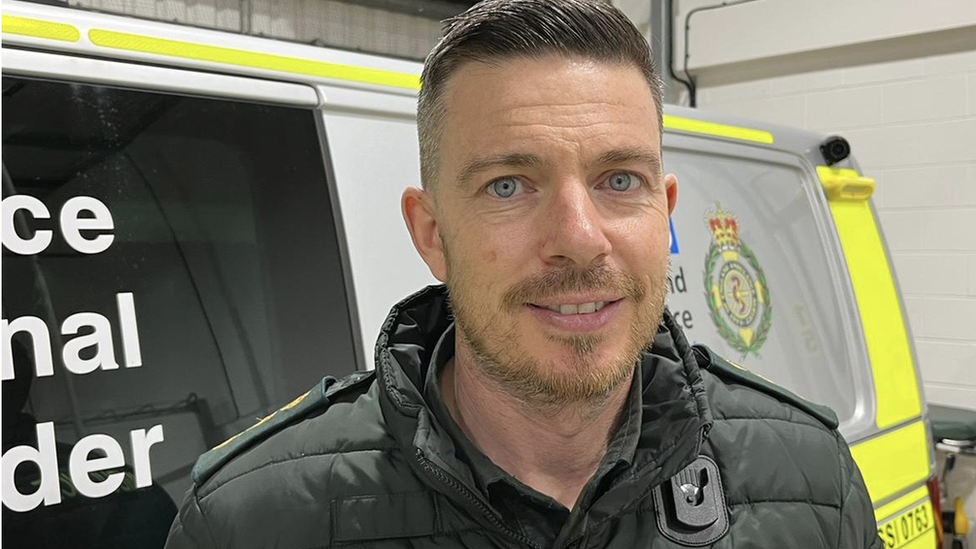Felixstowe: Nine-hour ambulance wait prompts family action
- Published
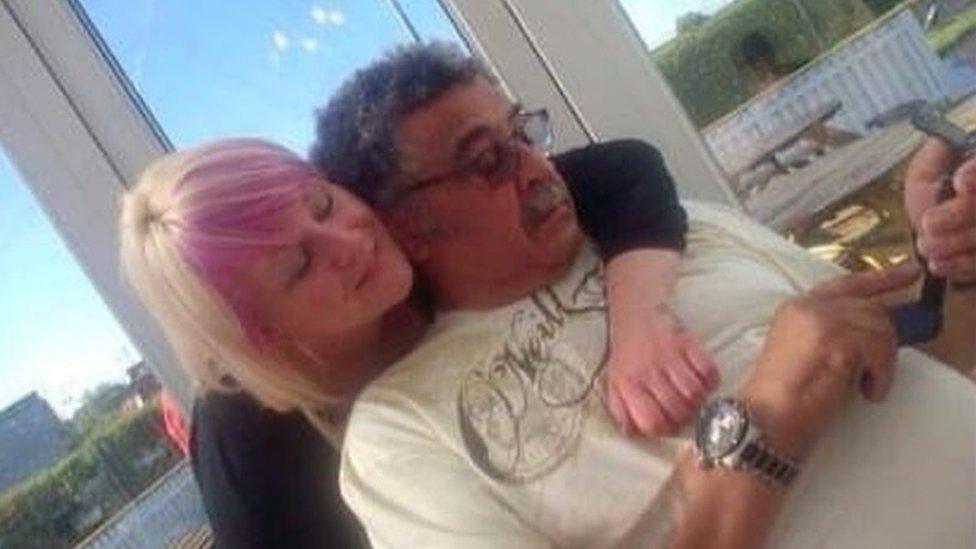
Kara La-Mont with her father Tony before he suffered a stroke
A woman said her brother's decision to drive their father to hospital after being told he had a nine-hour wait for an ambulance probably saved his life.
Tony La-Mont, 73, from Felixstowe, was showing signs of a stroke when his wife called 999 on 14 December.
The call handler said because he had movement his symptoms were not serious enough for an emergency response, his daughter Kara La-Mont said.
The ambulance trust said high demand meant they could not always respond.
Ms La-Mont, 35, also from Felixstowe, said it was obvious her father's condition was serious, describing him as "normally being a fit and healthy bloke".
"Dad could move but we still needed to get him to hospital. It was clear something was going on," she said.
"Within five minutes, [of the 999 call] he just stood there, he couldn't talk."
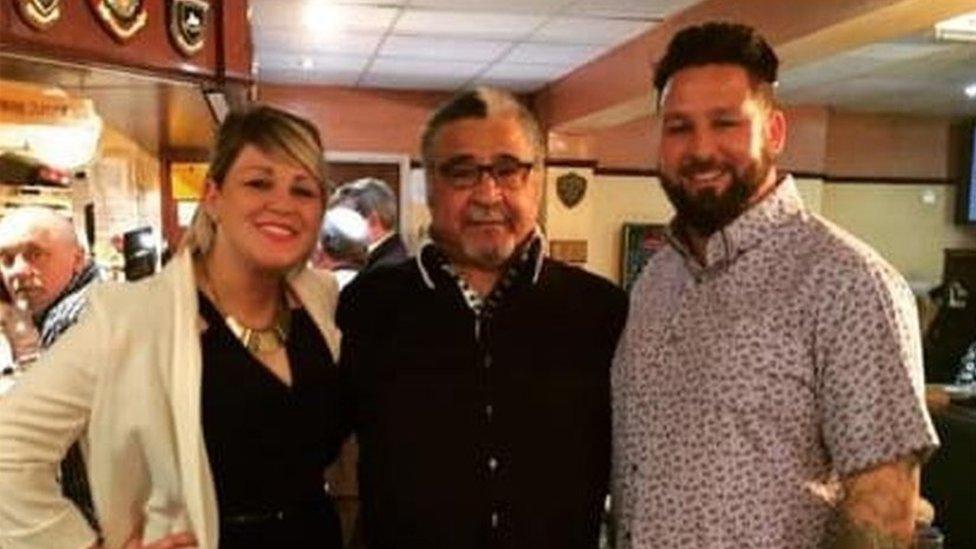
Kara La-Mont with her father Tony and her brother Courtney who drove their father to hospital rather than wait for an ambulance to arrive
Ms La-Mont's brother, who was working nearby, decided to drive their father to the accident and emergency department rather than wait.
"It's just lucky that he could walk really," she said. "Could he not, it would all be a different scenario."
Ms La-Mont said her father was seen "very quickly", within five minutes of arrival at Ipswich Hospital.
She said medics confirmed bleed on the brain after a CT scan. He was given medication to disperse a blood clot.
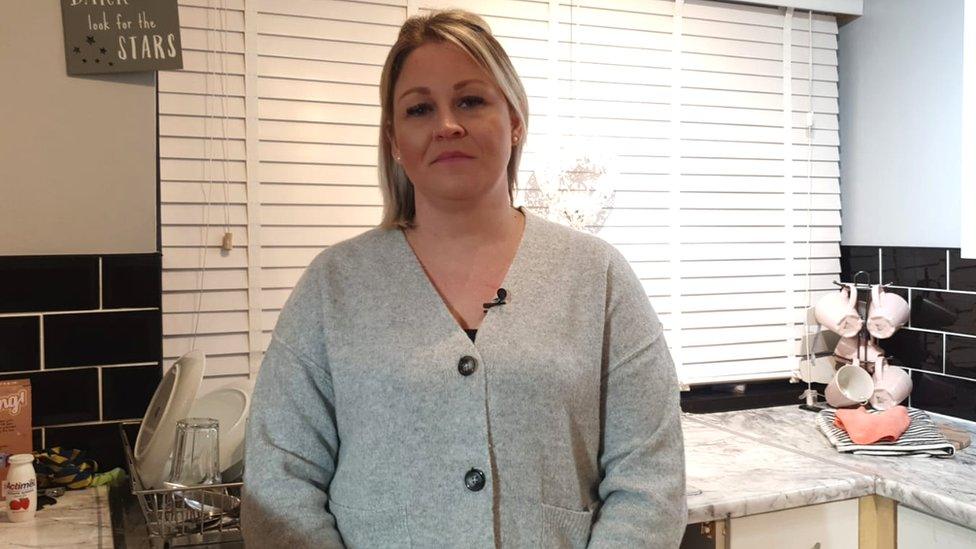
Kara La-Mont says more investment is needed in the ambulance service
Ms La-Mont said he received excellent treatment at the hospital but was concerned about the state of the ambulance service.
"It's hard. There's not enough of them," she said.
Her father was discharged on Saturday and is now recovering at home, but will require speech therapy.
In a statement, the East of England Ambulance Service Trust (EEAST) said: "The NHS is currently facing incredibly high demand and we are working very closely with hospitals to reduce handover delays and improve care to our patients.
"When demand is at its highest we regret that we are sometimes unable to send ambulances as quickly as we would wish, even to our most serious patients.
"We are working very closely with our NHS partners to reduce handover delays at hospitals to get more ambulance crews back out into the community to improve care for our patients.
"We are also working to reduce the number of patients going to hospital, including directing patients to urgent community response services when appropriate."

Find BBC News: East of England on Facebook, external, Instagram, external and Twitter, external. If you have a story suggestion email eastofenglandnews@bbc.co.uk, external
- Published1 December 2022
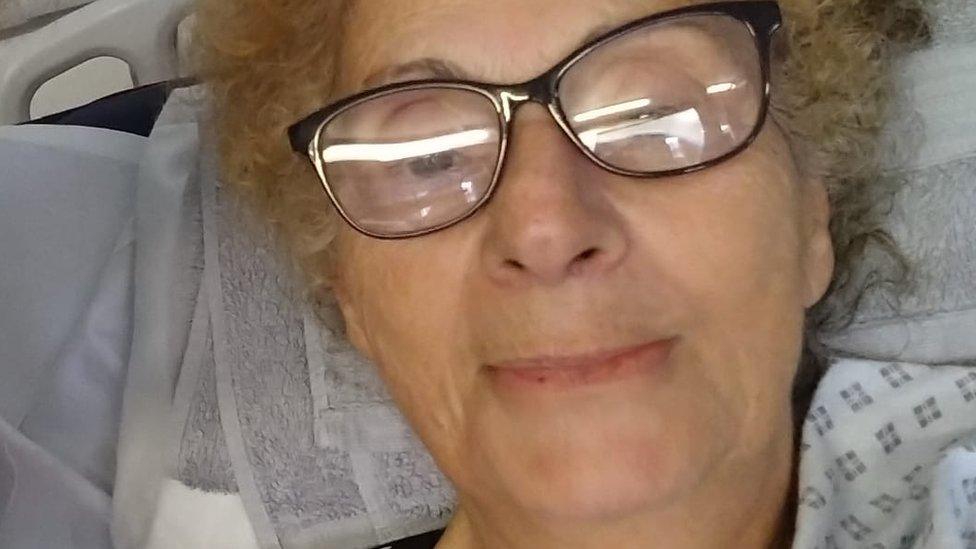
- Published29 November 2022
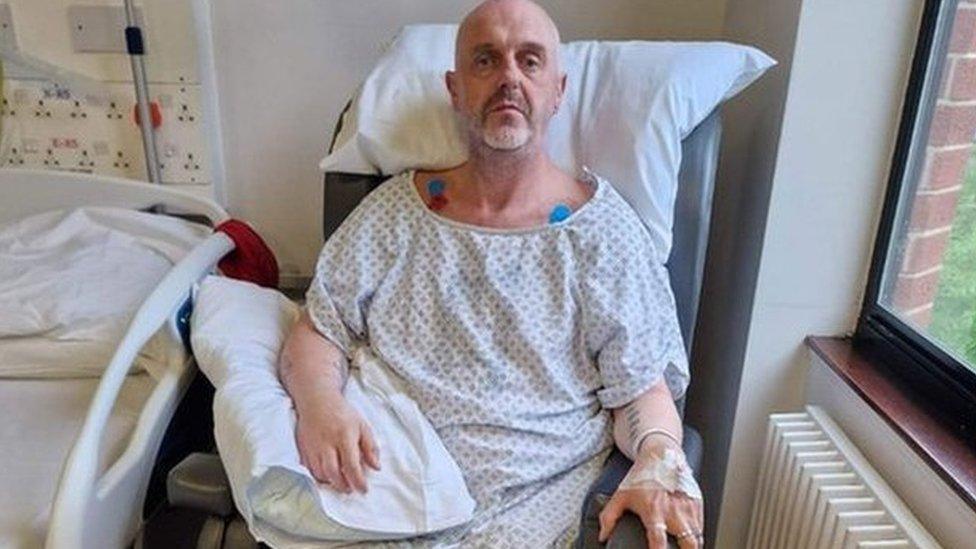
- Published24 November 2022
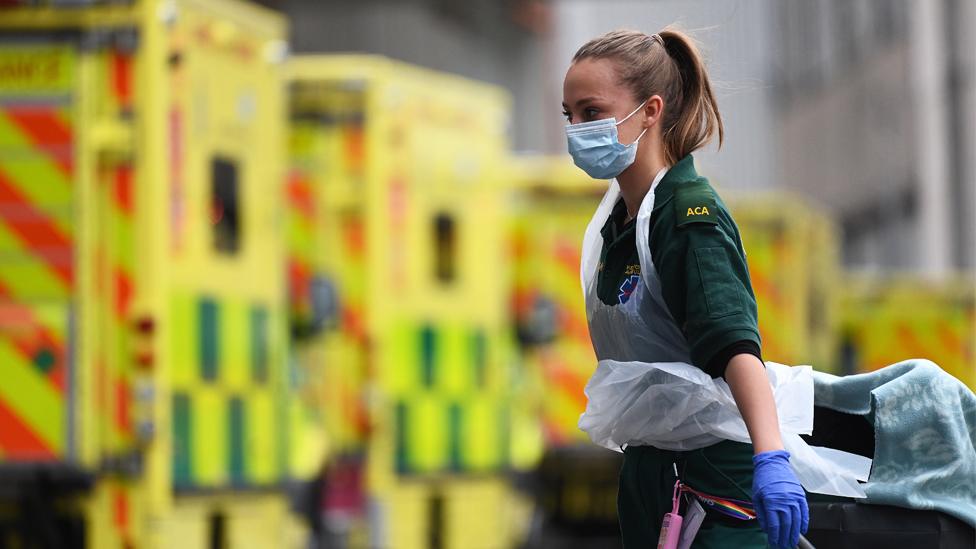
- Published21 November 2022
